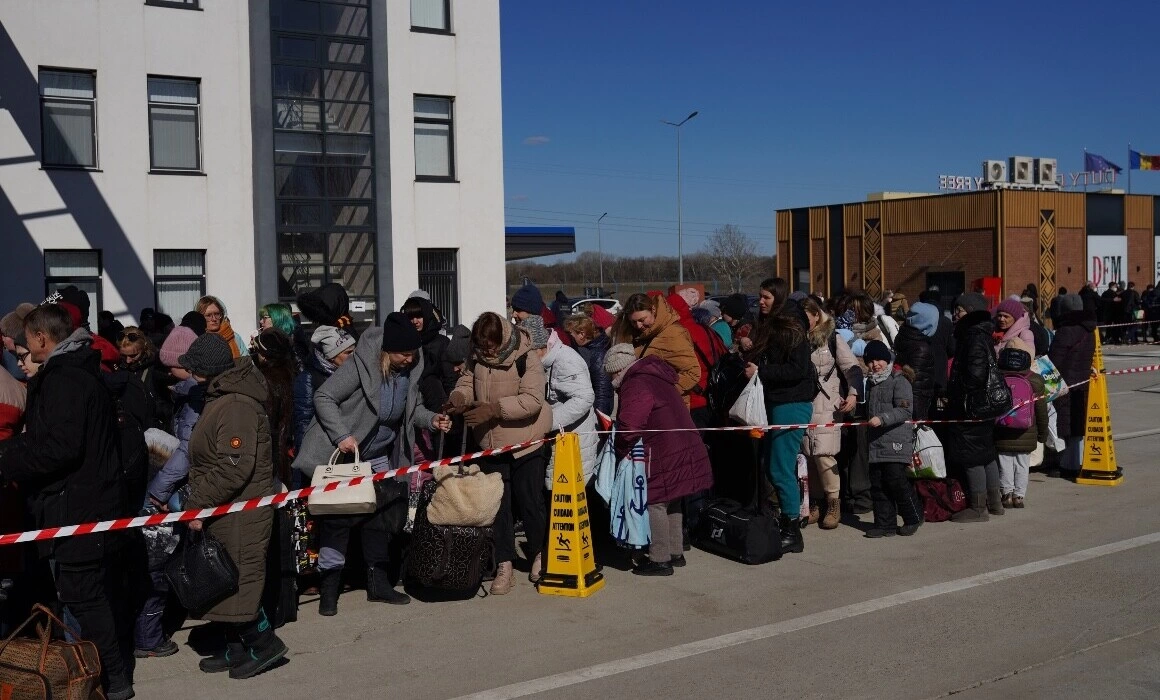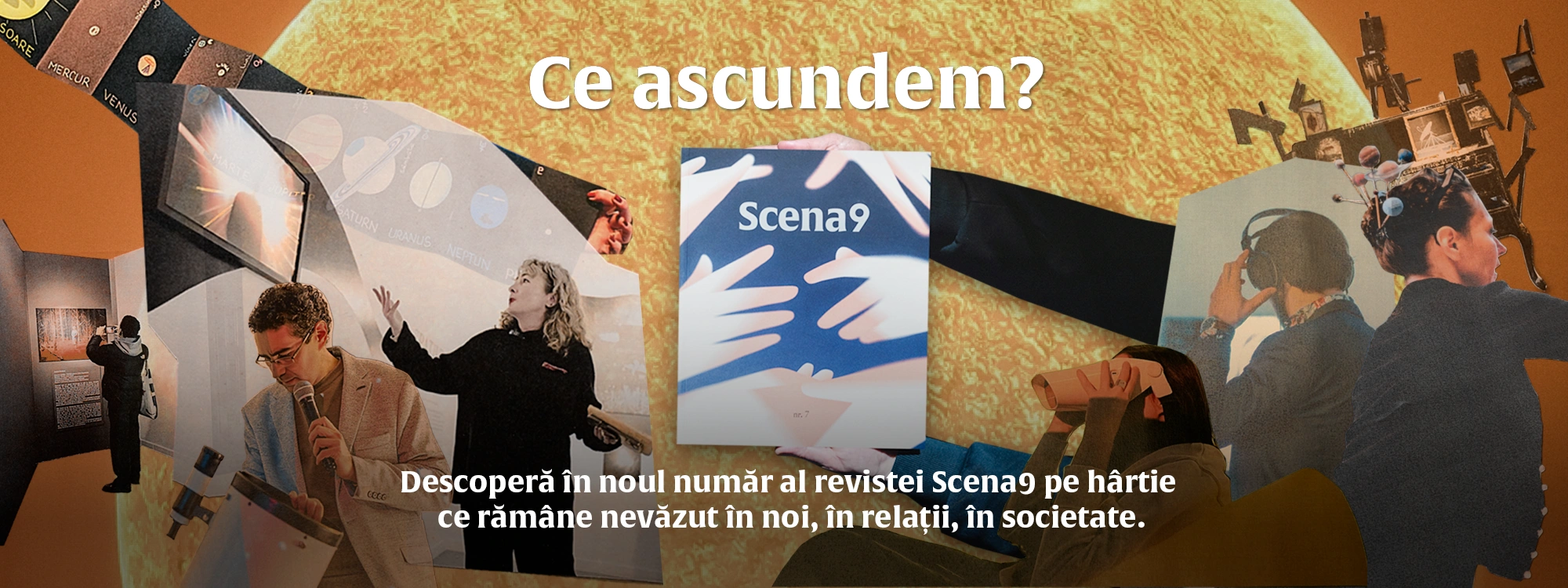The number of Ukrainians fleeing the war reached about 3 million on March 15. Half of them are children. This means that a child has become a refugee almost every second since the war began. It is the fastest growing refugee crisis in Europe since World War II.
More than 300,000 people crossed the border from Ukraine into the Republic of Moldova, the poorest country in Europe, with a population of under 3 million. A third of them stayed on, due to the similarity between the two cultures, and especially because many people in Moldova speak Russian. The Moldovan government needs about 25-30 euros a day for each refugee and has asked for help from the European Union. Germany will allocate 3 million euros to the Republic of Moldova, and both Germany and France have promised to take in 2,500 Ukrainian refugees from Moldova.
I went to the Palanca customs checkpoint and to Chișinău, in order to write about both the people who managed to escape the bullets and those who are receiving them.
"We did not want to go without my husband. The little girl did not want to leave papa in Ukraine," Elena Iliescu, a 40-year-old woman from Ciornomorsk, 66km away from Palanca, tells me in a poetic kind of Romanian language. It's Saturday, March 12, at noon, and she and her 7-year-old daughter, Dasha, have barely set foot on "pacifist land." This is taking place in Palanca, Moldova, a village with less than 2,000 inhabitants in the east of the country. Around them are mothers, children, grandparents, puppies, trolleys, backpacks, raffia bags, cardboard boxes, bags of toys, children's scooters.
Elena and Dasha have been putting this day off for 17 days since the beginning of the war. At first, they tried to get used to the fact that the school had closed. Then with the shops and the apoteka (pharmacy) closing their doors at 4-5 in the afternoon. Or with the fact that, during the hours when they were open, they would often return home from shopping empty-handed. "If the siren sounded, we had to leave the produktî at the store and run away." With the fact that more and more of their friends, neighbors, and relatives were leaving the country.
After two and a half weeks of living in fear, Dasha was jumping out of bed more and more often because of the sirens. "The little girl was sleeping poorly," her mother noticed. The woman had also become increasingly stressed, starting with the first week that naval battles had taken place near their Black Sea town. She was facing one of the hardest decisions of her life. She was comforted by the idea that she had a brother and several relatives living in Chișinău and began packing. "In our luggage we took our clothes, a toy bag, a bag of food, and vsyo (that’s it)." She doesn't know what will happen next. "All I can think about is that the war is over and it will never happen again." And about being reunited with her husband.
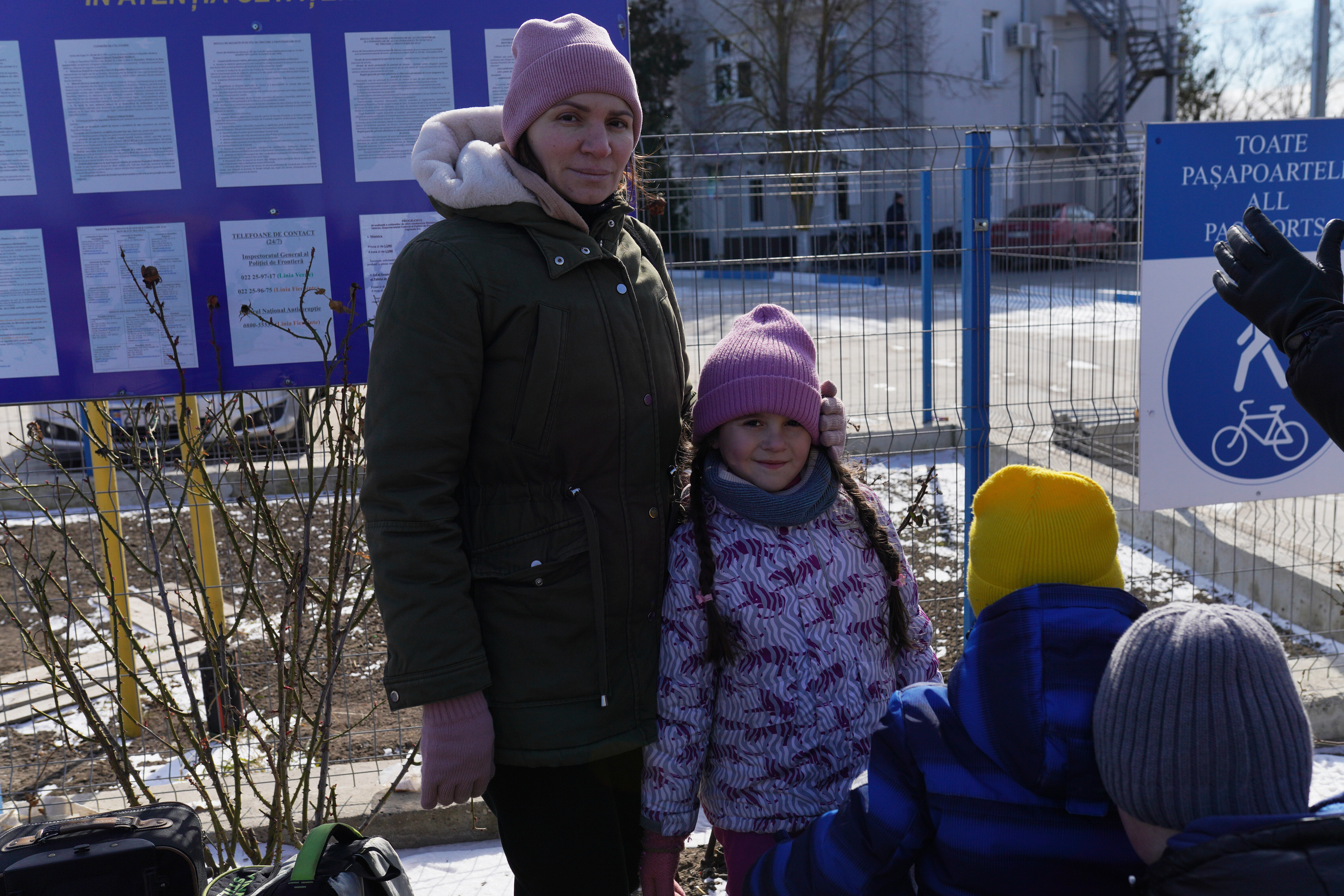
At the border, several volunteers and police officers lead people to a yellow minibus inscribed "Student Transport" and help them with their luggage. The minibus takes them to the Information Point a few minutes away, where other volunteers offer them tea, coffee, salami buterbrod, gingerbread, pretzels, apples, biscuits, yogurts, a kind word and transportation information in a tent. Several buses offer free or paid trips to the capital of Chișinău, to neighboring Romania, to Poland or the Czech Republic. In a nearby tent, two radiators try to heat up the place without much success. The temperature outside is a few degrees below zero centigrade and inside children, young people, and mothers are huddled on wooden benches, some with blankets on them. At the end of the tent there is a playground, where children and adults take off their shoes before entering.
Together, we help people
“Mom, what happened to them, why are there so many people? Why are the children scared?”, Jeni, a 5-year-old girl from Brînza village, in the Cahul district of Moldova, asked her mother during the first days of the conflict.
“There’s a war in their country, that's why they came here,” Iuliana Hâncu told her daughter, who is not yet in school.
The 23-year-old was taking tailoring classes and thought they could wait, while the people couldn't. "Why not help with a helping hand, with guidance? That's all I can do. I came with my five-year-old daughter and together we help people.” The girl plays with the other children with teddy bears or dolls, colors and communicates through signs, because she knows neither Ukrainian nor Russian. "It’s shocking for her, as the other children are refugees, they’re scared and she’s giving them a helping hand," Iuliana says.
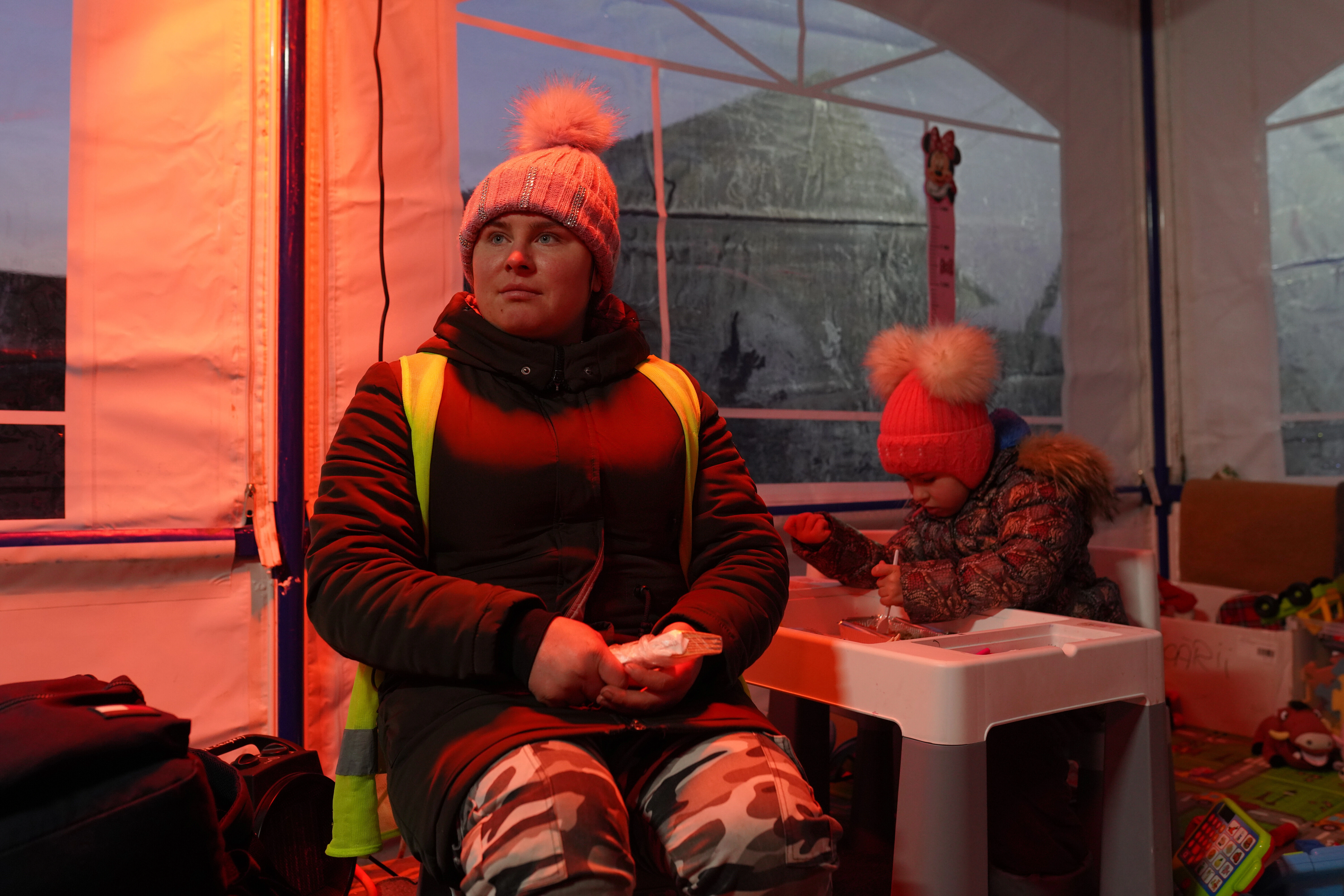
"It was a disaster, many people dead and houses destroyed, people injured," Nastia, an 18-year-old girl with a purple headscarf, recalls about the reality of her hometown, Nikolaev. "There is bombing at night, there are a lot of fires. The streets and the houses are turning into a disaster,” she continues. She took her brother, who is exactly half her age, left their father behind and fled for Italy, where an aunt and her mother (who was undergoing medical treatment there) are waiting for them. Nastia dreamed of studying acting in Kharkiv, but in the meantime the city has become one of the most bombed in Ukraine, and the university was destroyed. She has no other plans for now. For the time being, she is taking care of her brother, so that he doesn’t go cold or hungry for too long. She wraps him in a blanket, while they both scarf down some rice pilaf and hot sausages.
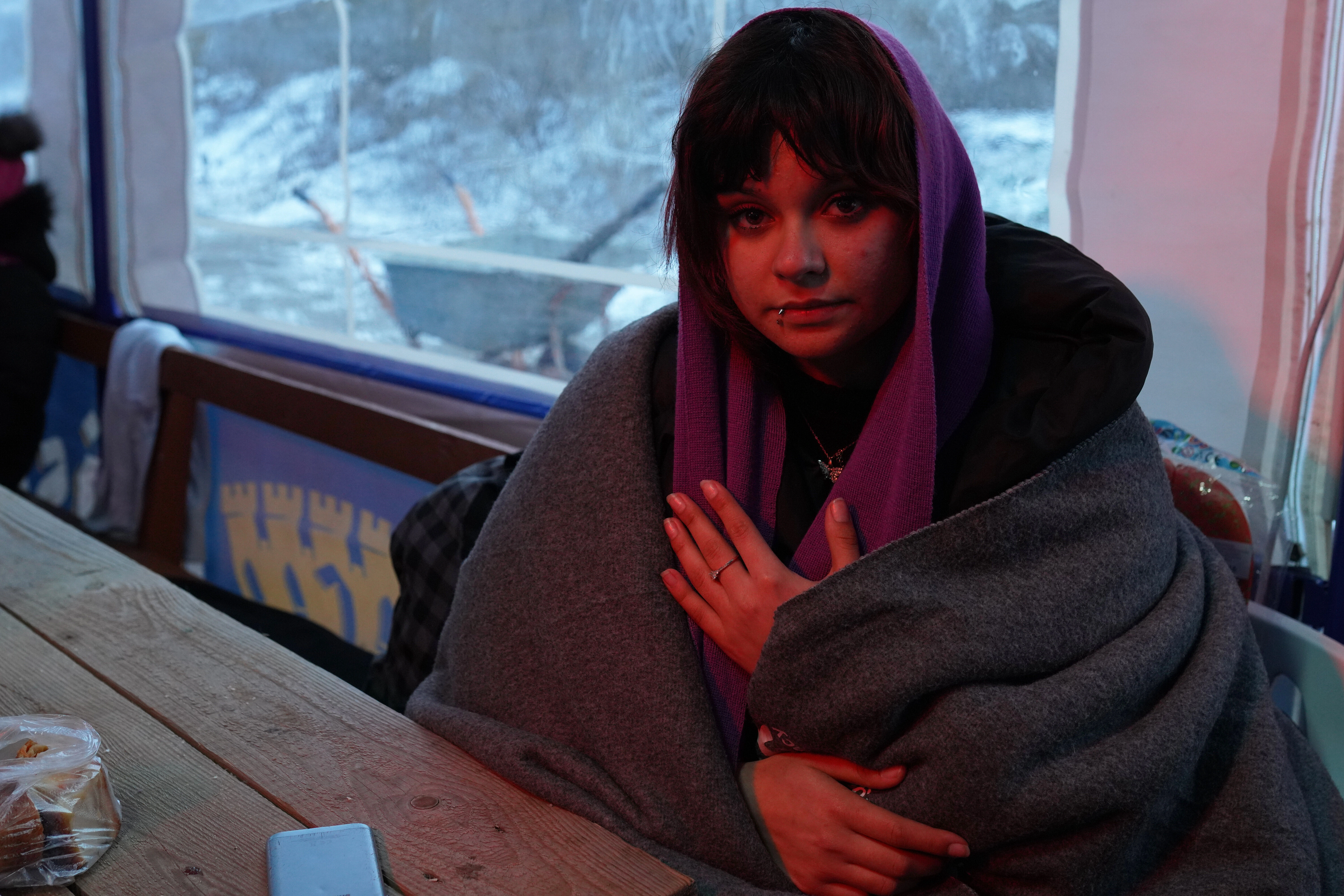
Because the young woman only speaks Russian and Ukrainian, Vasea Znacoven translates for us. He is a 19-year-old volunteer and member of a Pentecostal church, who, when not running around from one place to the next, helping people, plays the guitar.
"The Ukrainians would thank us, as they did not expect the neighboring people to help them like this. And we didn't expect to mobilize to such an extent either,” says Dan Gherman, a volunteer with Moldova for Peace, who helps people with transportation information. "I personally receive positive energy, even though I only get two hours of sleep at a time."
Where volunteers cannot help, therapists intervene. Eduard Savin, a psychologist with the General Inspectorate for Emergency Situations of the Republic of Moldova, offers support to adults and children who ask for his help. "There was a 12-year-old girl today. The child hates the people who created this war," he says. After listening to the girl talk about how difficult it is to understand the man who unleashed the horror and the fact that she will no longer be able to see her friends and relatives, he tried to instill hope in her. "I explained to the little girl that she needs to focus on trust and help her mother and herself. Do not put your hands down and find a source from which to draw positive emotions. I told her that she could see new countries, new people, together with her mother. Who knows if she would have had this opportunity otherwise." The girl was going to go with her mother to their relatives in Germany.
For officer Daniel Mazepe, 30, this is his first day welcoming Ukrainian refugees in Palanca, as he had been previously assigned to other locations. "It's an emotional moment when the person crosses the border with confidence. And when we first ask, Can I help you with anything? they start crying and it’s as if they need to be hugged and cry in your arms like they would in the arms of a parent,” he says. "People in their 50s and 60s," he adds.
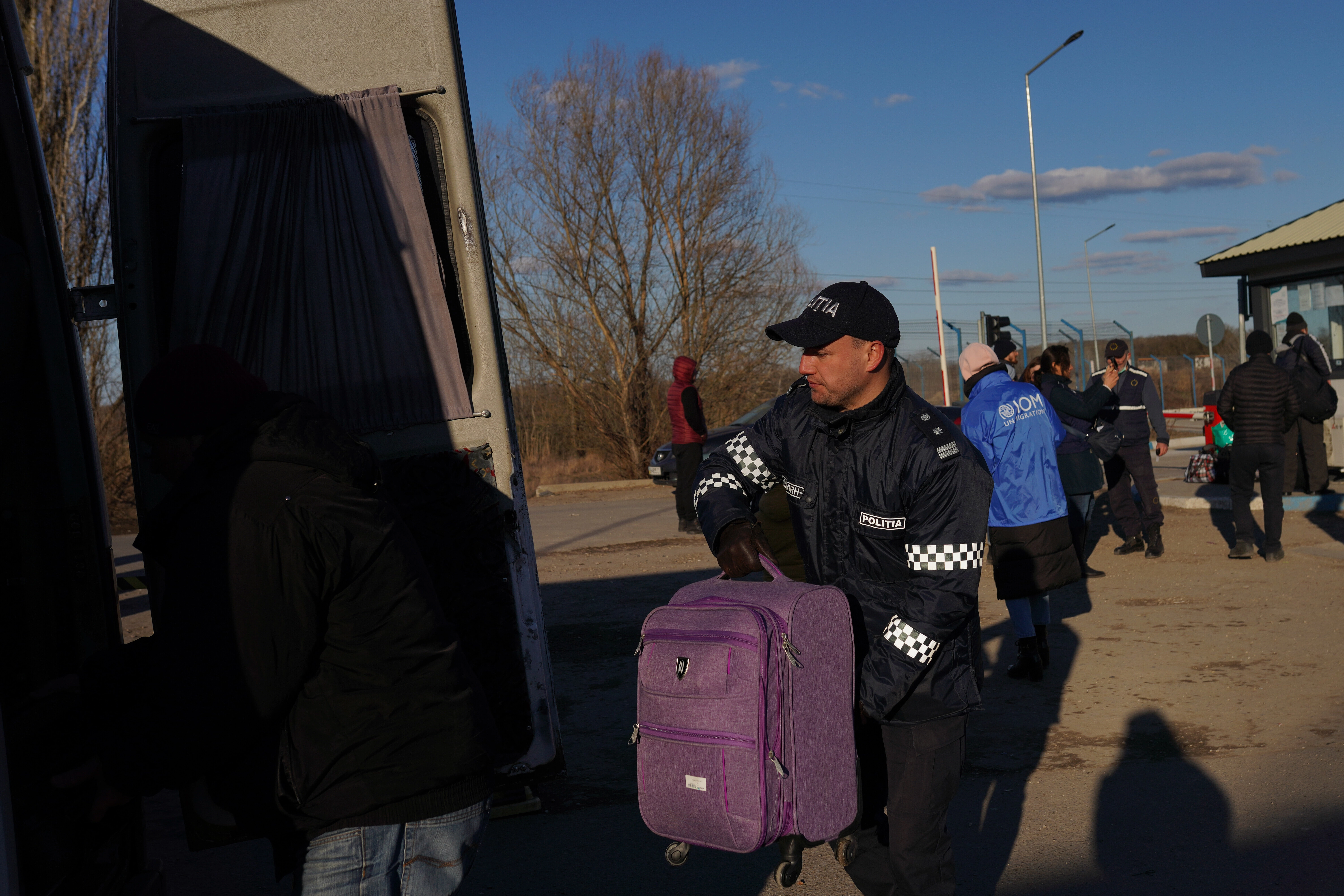
They realized they’re not ready to pack up and go out into the world
Angela, a 37-year-old woman who came with her one-and-a-half-year-old son and other relatives from Odessa three days ago, is now returning to Ukraine. "We will go back, we have no other choice, we depend on the men and can't support ourselves financially, we have to go back," Angela says, in Russian. "The baby is crying, he wants to go home. That's our home," she adds. During their three days of refuge in the Republic of Moldova, they were accommodated in a hospital that has been turned into a refugee center.
There are many more like Angela. About 1,000 Ukrainian refugees entered the Republic of Moldova on Friday afternoon, March 11, and almost twice as many returned to Ukraine on the same day, according to Palanca border officers.
"Many left, but realized they weren’t ready to pack up and go out into the world, so they’re returning home," Officer Mazepe said. Among those who initially managed to escape the bullets and are now returning to Ukraine are people who left in the early days of the war with little luggage and are now returning to take their belongings.
Psychologically, that's the hardest part
In Chișinău, people from Ukraine are accommodated in sports complexes, student dormitories, hostels, exhibition spaces, a former entertainment complex, synagogues, churches, in people's homes, etc. Moldexpo, the Chișinău equivalent of the massive socialist-era exhibition complex Romexpo in Bucharest, has accommodated about 100 people, mostly mothers with children, but also elderly couples. Some have been here since the war began and are waiting to return home, others only stay for a few hours or days until they are transported to another country, where they have family, or where they strive to start life over from scratch, without any acquaintances there.
The space at Moldexpo is divided into small cabins, because it is a former Covid center. There is a bed in each compartment and curtains for doors. Children run in the hallway, a little girl is rocking on a toy horse, at a table a few children are coloring, under the supervision of Ana Josan, 66, from the Chișinău Child Protection Center.
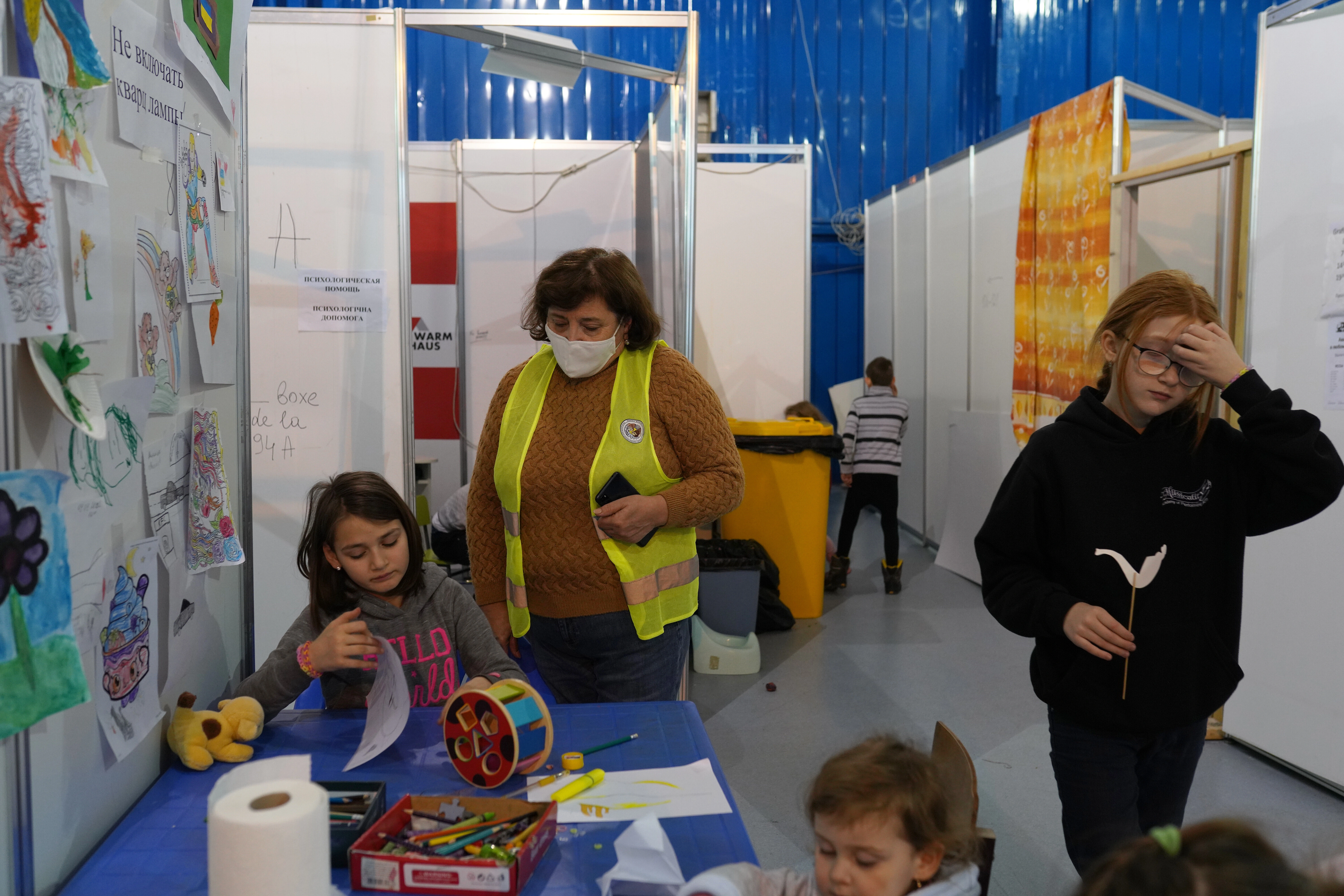
"We try not to influence their way of playing. They play as they will, color if they want, and leave whenever they want to. Psychologists recommend that they do what they want, of their own initiative," says Ana Josan, born in Dubasari, Transnistria, who is well acquainted with the consequences of war on children. Her daughters were only 10 and 14 years old, respectively, when the war in the separatist republic began in 1992. "They bombed our house. My husband was a commissioner and he was arrested. There were major consequences for my daughters,” she says. Her voice drops and she tears up. "One of them was still wetting the bed at the age of 10, she underwent treatment for half a year to be cured of this. My older daughter was also admitted into the neurology hospital. The consequences were massive." The girls are better now, hee husband is still alive, and together they heard another war start. "On February 24, I heard loud noises at 6 in the morning in Stăuceni (Editor’s note: 3 kilometers away from Chișinău), even the windows were rattling. I told my husband, ‘They’re bombing!’"
Now she looks at the single mothers hosted at the center who have run away with their children and her heart breaks. "I think of it this way: it’s one thing if they came here with their husbands. I can’t imagine how they’re coping like this. They left their entire households there, their husbands were left there. They’re staying here all alone and no one knows what happens next. Psychologically, that's the hardest part. "
Unlike Moldexpo, at the "Lightweight Athletics" sports arena in Chișinău, on Sunday, March 13, about 100 Ukrainian refugees were being housed together, on folding beds with mattresses as thick as two hands clasped together. A few large radiators stood on one wall, but too few for a gym of that size. Mothers were breastfeeding, preparing bottles of powdered milk, while others swept the floors and their children played in the cold.
95% of the people here are Roma. According to Marina Buga, deputy head of the General Directorate of Medical and Social Assistance, the distribution of refugees in the available accommodation spaces is based on "communities of origin," not ethnicity. That same day, the building of a non-functional entertainment space within the former Patria LukOil cinema, stood empty, with dozens of beds with thick, brand-new mattresses.
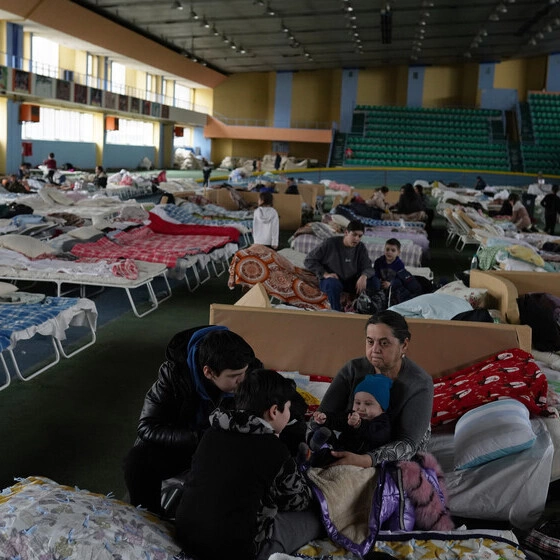
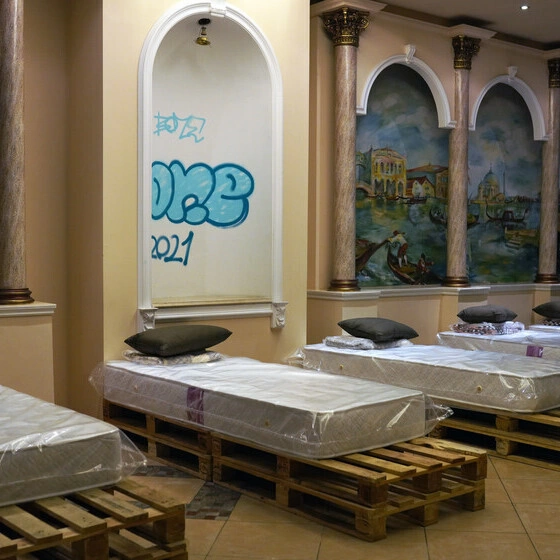
On a folding bed in the “Lightweight Athletics" sports complex, Kireș, a 74-year-old grandmother from Odessa, has been waiting for 4 days for her daughter who arrived in Hungary to send her the passport she forgot with her, or to receive a new one from the Embassy of Ukraine. Her other daughter, who is with her, shows us the picture of her passport on her phone. The elederly woman was stopped at the Sculeni customs checkpoint, when she wanted to enter Romania from the Republic of Moldova with her children and grandchildren. She was rather cajoled into leaving her home by them. "I want the war to end and for us to return to Odessa. I want to go home. I'm old and sick."
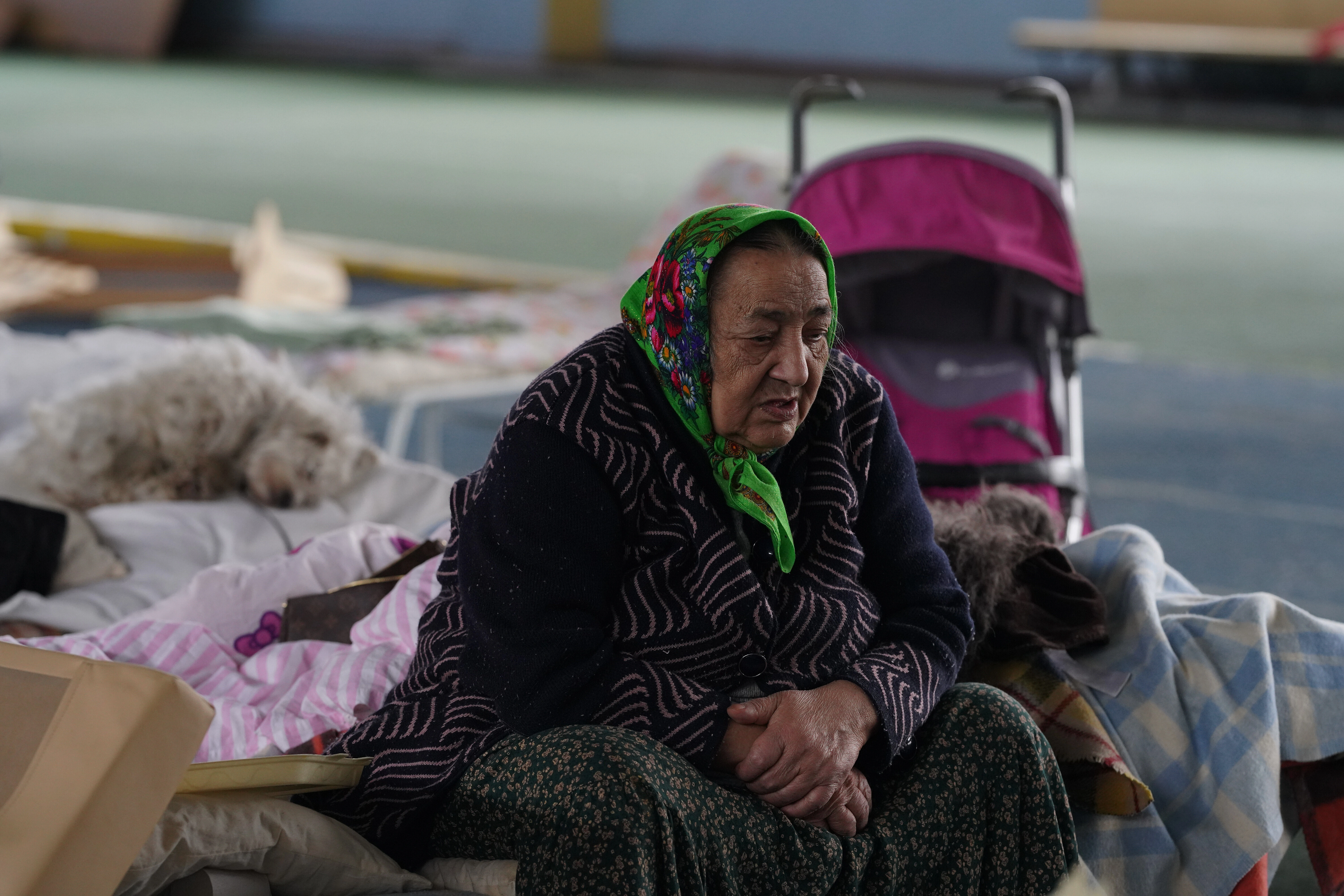
In a room in the yard of the "Agudath Israel" Synagogue in Chișinău, 82-year-old Lyubov Antonovna places a folder of documents on top of a rack full of clothes hung out to dry. Fifteen years ago, she had planned to move to Israel with her Jewish husband, but he fell ill and died. She now has the right to live in Israel as a Jewish widow and is in the process of obtaining a visa. After the war began, it was difficult for her to leave her home in Kyiv, move to a country whose language she did not speak, and where "they also have their conflict." But she has a niece there, who is waiting for her. Part of her wants to return to Ukraine, and the other reconciles with the thought that her departure for Israel will be in her husband's memory. "I will fulfill his dream without him."
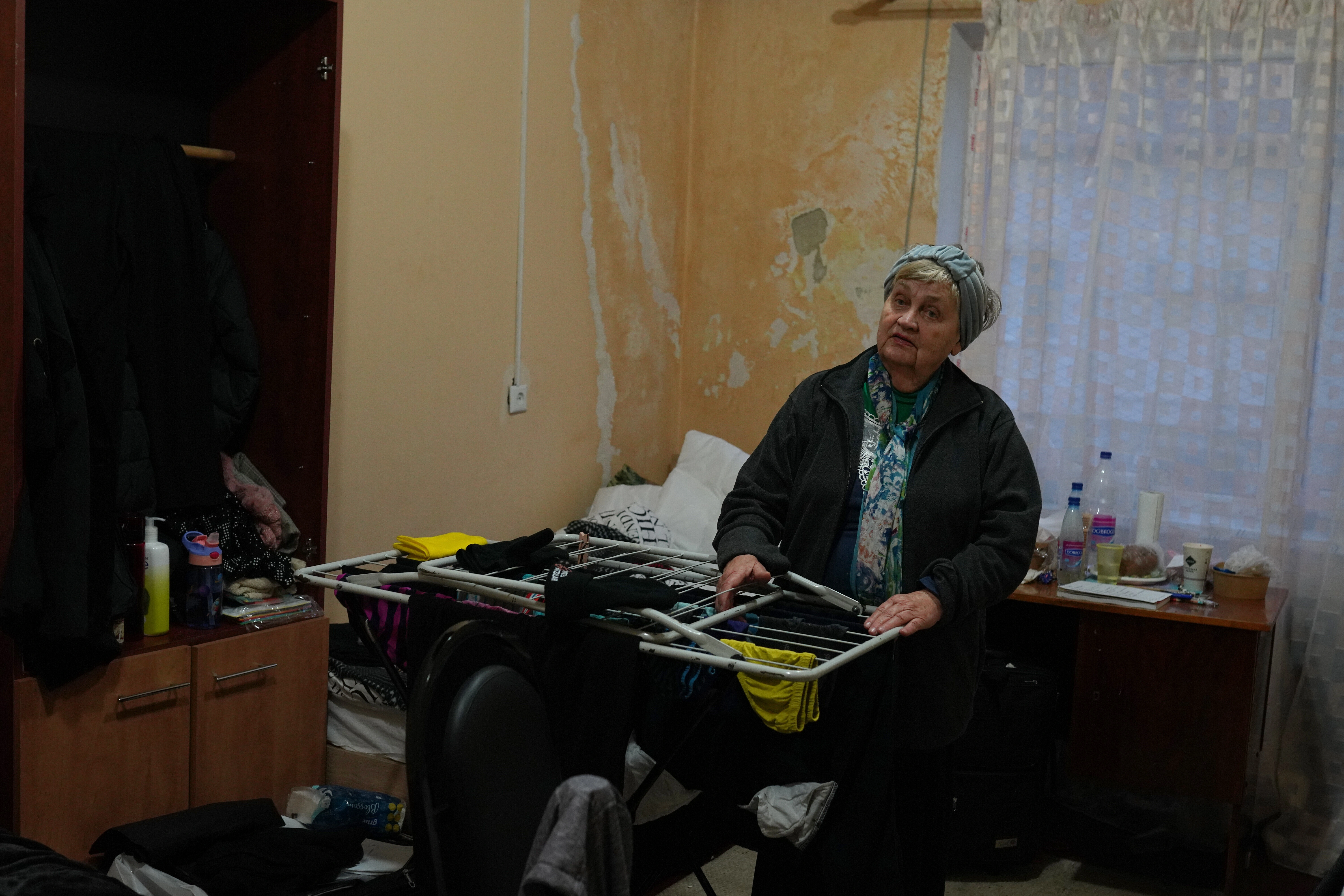
Translated from the Romanian by Ioana Pelehatăi
